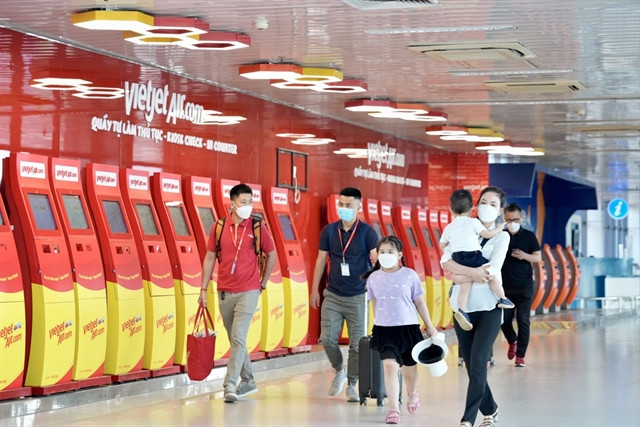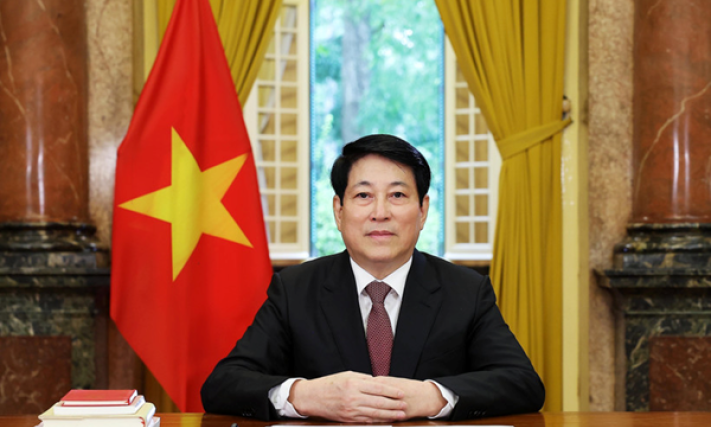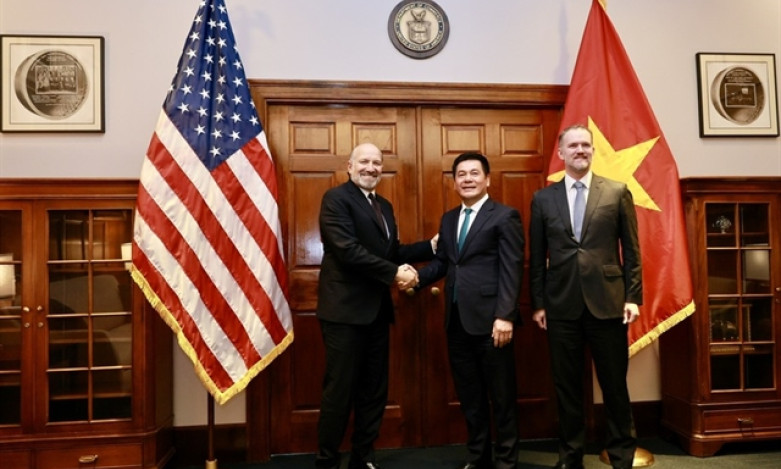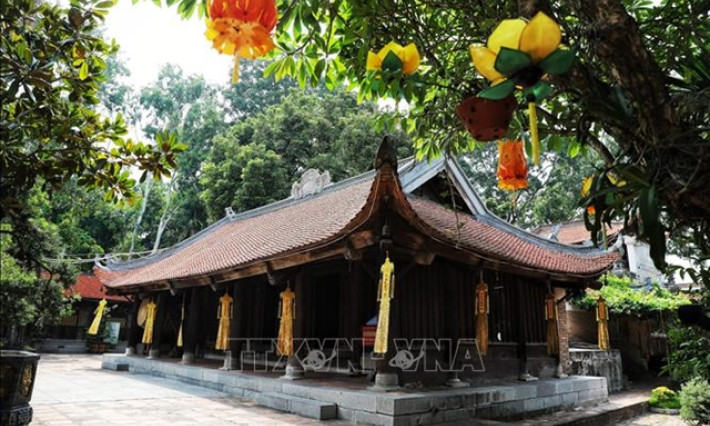Price ceiling hike for air tickets will not hit inflation
A modest hike in the price ceiling for air tickets would not have a significant impact on the consumer price index in 2022 and hurt customers, said the director of the Civil Aviation Authority of Vietnam (CAAV) Đinh Việt Thắng.
Earlier, the CAAV proposed raising the price ceiling for airfares, citing a surge in petrol prices as a reason. It noted geopolitical tensions, especially the Russia-Ukraine conflict, have pushed the jet fuel price of Jet A1 to a new height since the beginning of 2022.
Thắng said during a conference late last week that the jet fuel price of Jet A1 has risen to US$130 per barrel, nearly double that of 2021, so the CAAV's proposal was made to partially remove difficulties for Vietnamese airlines that had been suffering huge losses.
The proposed price, which would see an average increase of 3.7 per cent, would equal the ceiling price applied in 2015, Thắng said, adding that the CAAV had also calculated the ceiling price to protect the interests of passengers while ensuring the State's policies to combat inflation and increase prices.
Talking about the possibility that airlines would increase ticket prices during the upcoming peak season April 30 to May 1 after a hike in the ceiling price, Thắng said during the peak season, the average ticket price could not reach the ceiling, and would be only equivalent to 60 per cent of this figure.
Meanwhile, airlines had many ranges of fares, no airline only sold tickets at a ceiling price. Therefore, in order to access affordable air tickets, passengers should purchase early instead of booking close to the departure date, resulting in higher ticket prices, he added.
Under its proposal, the ceiling prices of tickets would be increased to VNĐ2.25 million ($97) from the current VNĐ2.2 million for flight distances between 500km and 850km, up 2.2 per cent, while that for flight distances between 850km and 1,000km would be raised to VNĐ2.89 million from the current VNĐ2.79 million, up 3.5 per cent.
For flights between 1,000km and 1,280km and above, passengers were expected to pay up to VNĐ3.4 million, up 6.2 per cent, and VNĐ4 million, up 6.6 per cent, respectively.
Air ticket prices for flights below 500km would stay the same.
Punctuality of Vietnamese airlines reaches 95.5% in Q1
The overall punctuality of the local aviation industry was 95.5 per cent in the first quarter of this year, the latest statistics from the CAAV showed.
In the period, Việt Nam's six airlines operated 58,302 flights, a reduction of nearly 25 per cent compared to last year’s figure.
Bamboo Airways took the lead with 96.6 per cent of its flights on time; Vietnam Airlines and Pacific Airlines ranked second and third with on-time performance (OTP) of 96 per cent and 95.7 per cent, respectively; and the OTP rate of Vietjet was 94.4 per cent.
According to CAAV, Bamboo Airways is also the carrier with the lowest rate of flight delays among Việt Nam’s three big airlines with 3.4 per cent, a year-on-year decrease of 1.2 per cent, while that of Vietnam Airlines and Vietjet was 4 per cent and 5.6 per cent, respectively.
The overall rate of flight delays in the sector was 4.5 per cent in the first three months of 2021, a decline of 7.3 per cent compared with the same period. Meanwhile, the cancellation rate of the domestic aviation industry in the period was 1.3 per cent, a year-on-year increase of 1.1 per cent. Vietnam Airlines led the industry with 2.7 per cent of the flights cancelled.
The main reasons leading to flight delays of airlines include late return flights, poor management as well as equipment and services at the airport.
In the first quarter of this year, domestic and international routes have been gradually restored to meet the increasing travel demand. Since regular international flights were resumed and the country was opened to international tourists in mid-March, airlines have raised the frequency of their operation on many routes.
From the end of March, Vietnam Airlines plans to increase international flights every week and expand its exploitation to markets such as Singapore, mainland China, Japan, South Korea as well as domestic routes to meet market demand.
Vietjet is striving to increase the frequency of many international routes connecting Việt Nam with South Korea, Taipei (China), Japan, Singapore, and Thailand.
A representative of Bamboo Airways said that in order to meet the increasing travel needs of customers in the new normal, the airline is developing a network of flights to many countries in the world.






